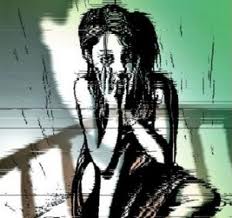LAHORE: It was barely 4 a.m. when 19-year-old Rinkal Kumari disappeared from her home in a small village in Pakistan’s southern Sindh province. When her parents awoke they found only her slippers and a scarf outside the door.
A few hours later her father got a call telling him his daughter, a Hindu, had converted to Islam to marry a Muslim boy.
Only days later, Seema Bibi, a Christian woman in the province of Punjab, was kidnapped along with her four children after her husband couldn’t repay a loan to a large landlord. Within hours, her husband was told his wife had converted to Islam and wouldn’t be coming home. Seema Bibi escaped, fled the village and has gone underground with her husband and children.
Hindu and Christian representatives say forced conversions to Islam have become the latest weapon of Islamic extremists in what they call a growing campaign against Pakistan’s religious minorities, on top of assassinations and mob intimidation of houses of worship. The groups are increasingly wondering if they still have a place in Pakistan.
“It is a conspiracy that Hindus and Christians and other minorities should leave Pakistan,” says Amar Lal, the lawyer representing Kumari in the Supreme Court. “As a minority, we feel more and more insecure. It is getting worse day by day.”
In the last four months, Lal said, 51 Hindu girls have been forcibly converted to Islam in southern Sindh province, where most of Pakistan’s minority Hindu population lives. After Kumari disappeared from her home on Feb. 24, Azra Fazal Pachuho, a lawmaker and the sister of Pakistan’s President Asif Ali Zardari, told Parliament that Hindus in southern Sindh were under attack by Islamic extremists.
Kumari’s family has gone to the Supreme Court to get their daughter back. But the case is hotly contested by the Muslim family, who say Kumari’s conversion was voluntary. They say the couple had known each other and exchanged Facebook messages and phone calls before she converted and they married.
On Monday, the Supreme Court ordered Kumari kept in a women’s shelter in southern Karachi until it resumes hearing the case on April 18.
“Christian and Hindu girls are targeted more and more,” says Father Emmanuel Yousaf, who heads the National Commission for Justice and Peace, an organization born out of the Catholic Bishop’s Conference.
Yousaf, in the Punjabi capital of Lahore, said his group was helping Seema Bibi and a number of other Christians who had to leave their villages because of threats from extremists. Some of them were girls who were forcibly converted and others, he said, were falsely accused of acting against Islam for allegedly insulting the Prophet Muhammad or abusing the Quran.
There are dozens of cases of minorities being accused of insulting Islam under the country’s controversial blasphemy laws. Often the cases are rooted in disputes with Muslim neighbors or as coercion to convert, and judges often feel intimidated by extremists into convicting accused blasphemers, said Yousaf. “They know where you live and where your children go to school,” he said.
Roughly five percent of Pakistan’s 180 million people belong to minority religions, which include Hindu, Christian, Shiite Muslims and Ahmadis, according to the CIA World Factbook. Ahmadis are reviled by mainstream Muslims as heretics. Over recent years, violence against the minorities has increased, as Islamic hard-liners’ influence over the country has strengthened.
Source : https://timesofindia.indiatimes.com



